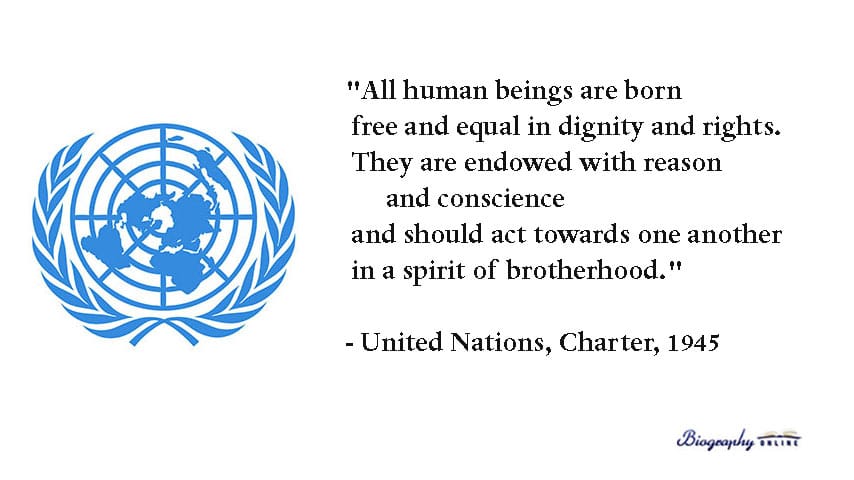
Some of the most famous and influential statements/quotes on human rights throughout modern history.
“In future no official shall place a man on trial upon his own unsupported statement, without producing credible witnesses to the truth of it.” –

Some of the most famous and influential statements/quotes on human rights throughout modern history.
“In future no official shall place a man on trial upon his own unsupported statement, without producing credible witnesses to the truth of it.” –
“The most disadvantageous peace is better than the most just war.”
Adagia (1508)
“War is delightful to those who have had no experience of it.”
― Desiderius Erasmus
“The summit of happiness is reached when a person is ready to be what he is.”
― Desiderius Erasmus
“Bis dat, qui cito dat.” – He that gives quickly gives twice.
Adagia (1508)
“I am a lover of liberty. I will not and I cannot serve a party.”
Spongia adversus aspergines Hutteni
“He who allows oppression shares the crime.”
― Desiderius Erasmus
“Bidden or unbidden, God is present.”
― Desiderius Erasmus
“I put up with this church, in the hope that one day it will become better, just as it is constrained to put up with me in the hope that I will become better.”
― Desiderius Erasmus
“No Man is wise at all Times, or is without his blind Side.”
– The Alchymyst
“By burning Luther’s books you may rid your bookshelves of him, but you will not rid men’s minds of him.”
― Desiderius Erasmus
“Only a very few can be learned, but all can be Christian, all can be devout, and – I shall boldly add – all can be theologians.”
― Desiderius Erasmus
“Wherever you encounter truth, look upon it as Christianity.”
― Desiderius Erasmus
“There is nothing I congratulate myself on more heartily than on never having joined a sect.”
― Desiderius Erasmus
“I am a citizen of the world, known to all and to all a stranger.”
― Desiderius Erasmus
“A nail is driven out by another nail; habit is overcome by habit.”
― Desiderius Erasmus
“I doubt if a single individual could be found from the whole of mankind free from some form of insanity. The only difference is one of degree. A man who sees a gourd and takes it for his wife is called insane because this happens to very few people.”
― Desiderius Erasmus
“Do not be guilty of possessing a library of learned books while lacking learning yourself.”
Letter to Christian Northoff (1497), as translated in Collected Works of Erasmus (1974), p. 115
“In regione caecorum rex est luscus. – The main hope of a nation lies in the proper education of its youth”
― Desiderius Erasmus
“In the country of the blind the one eyed man is king.”
– Adagia
“I consider as lovers of books not those who keep their books hidden in their store-chests and never handle them, but those who, by nightly as well as daily use thumb them, batter them, wear them out, who fill out all the margins with annotations of many kinds, and who prefer the marks of a fault they have erased to a neat copy full of faults.”
― Desiderius Erasmus
“Next to the theologians in happiness are those who commonly call themselves the religious and monks. Both are complete misnomers, since most of them stay as far away from religion as possible, and no people are seen more often in public. They are so detested that it is considered bad luck if one crosses your path, and yet they are highly pleased with themselves. They cannot read, and so they consider it the height of piety to have no contact with literature..”
The Praise of Folly (1509)
“The merchants are the biggest fool of all. They carry on the most sordid business and by the most corrupt methods. Whenever it is necessary, they will lie, perjure themselves, steal, cheat, and mislead the public. Nevertheless, they are highly respected because of their money. There is no lack of flattering friars to kowtow to them, and call them Right Honorable in public. The motive of the friars is clear: they are after some of the loot. . . .”
The Praise of Folly (1509)
Related

“I think therefore I am”
– Rene Descartes. Descartes’ Meditation (1641) was a ground-breaking philosophical work, which challenged many established beliefs. Descartes tried to prove the existence of God, from the use of rational reasoning.
“In her (Nature’s) inventions nothing is lacking, and nothing is superfluous.”
– Leonardo da Vinci – who made detailed investigations of natural sciences.
“Here forms, here colours, here the character of every part of the universe are concentrated to a point; and that point is so marvellous a thing … Oh! marvellous, O stupendous Necessity — by thy laws thou dost compel every effect to be the direct result of its cause, by the shortest path. These are miracles…”
– Leonardo da Vinci – who made detailed investigations of natural sciences.
“Love shows itself more in adversity than in prosperity; as light does, which shines most where the place is darkest.”
– Leonardo da Vinci
“Human vocation is a mystical vocation that has to be realized following a three stage way, which comprehends necessarily moral transformation, intellectual research and final perfection in the identity with the absolute reality. This paradigm is universal, because it can be retraced in every tradition.”
The ‘Manifesto of the Renaissance’ was written by Pico della Mirandola – “Oration on the Dignity of Man” – It sought to encourage the striving for human excellence and a universal mystical vocation.
“I die the king’s faithful servant, but God’s first.”
― Thomas More (Renaissance thinker, who refused to acknowledge King Henry VIII Protestant reforms.) Read On…
“Listen with ears of tolerance! See through the eyes of compassion! Speak with the language of love”
– Rumi
“The golden rule of conduct is mutual toleration, seeing that we will never all think alike and we shall always see Truth in fragment and from different points of vision.”
“I never will by any word or act, bow to the shrine of intolerance.”
For a new type of progress throughout the world to become a reality, everyone must change. Tolerance is the alpha and omega of a new world order.
“Laws alone can not secure freedom of expression; in order that every man present his views without penalty there must be spirit of tolerance in the entire population.”
“The highest result of education is tolerance”
“Ignorance and prejudice are the handmaidens of propaganda. Our mission, therefore, is to confront ignorance with knowledge, bigotry with tolerance, and isolation with the outstretched hand of generosity. Racism can, will, and must be defeated.”
“It’s an universal law– intolerance is the first sign of an inadequate education. An ill-educated person behaves with arrogant impatience, whereas truly profound education breeds humility.”
― Aleksandr Solzhenitsyn
“Discord is the great ill of mankind; and tolerance is the only remedy for it.”
― Voltaire
“If we cannot end now our differences, at least we can help make the world safe for diversity. For, in the final analysis, our most basic common link is that we all inhabit this small planet. We all breathe the same air. We all cherish our children’s future. And we are all mortal.”
“It is in our liberal understanding of all religious faiths that we can hope to achieve tolerance. Tolerance helps us to a large degree to put an end to the age-old prejudices born of ignorance.”
“Religion is like a pair of shoes…..Find one that fits for you, but don’t make me wear your shoes.”
― George Carlin
“Unlimited tolerance must lead to the disappearance of tolerance. If we extend unlimited tolerance even to those who are intolerant, if we are not prepared to defend a tolerant society against the onslaught of the intolerant, then the tolerant will be destroyed, and tolerance with them.”
– Karl Popper, The Open Society and Its Enemies
“Resolve to be tender with the young, compassionate with the aged, sympathetic with the striving, and tolerant of the weak and the wrong. Sometime in life you will have been all of these.”
― Lloyd Shearer
Related pages
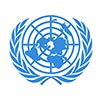

Related articles
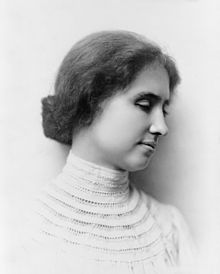
“I had now the key to all language, and I was eager to learn to use it. Children who hear acquire language without any particular effort; the words that fall from others’ lips they catch on the wing, as it were, delightedly, while the little deaf child must trap them by a slow and often painful process. But whatever the process, the result is wonderful. Gradually from naming an object we advance step by step until we have traversed the vast distance between our first stammered syllable and the sweep of thought in a line of Shakespeare.
– The Story of My Life (1903)
“If I am happy in spite of my deprivations, if my happiness is so deep that it is a faith, so thoughtful that it becomes a philosophy of life, — if, in short, I am an optimist, my testimony to the creed of optimism is worth hearing.”
– Optimism (1903)
“Once I knew the depth where no hope was, and darkness lay on the face of all things. Then love came and set my soul free. Once I knew only darkness and stillness. Now I know hope and joy. Once I fretted and beat myself against the wall that shut me in. Now I rejoice in the consciousness that I can think, act and attain heaven. My life was without past or future; death, the pessimist would say, “a consummation devoutly to be wished.” But a little word from the fingers of another fell into my hand that clutched at emptiness, and my heart leaped to the rapture of living. Night fled before the day of thought, and love and joy and hope came up in a passion of obedience to knowledge. Can anyone who escaped such captivity, who has felt the thrill and glory of freedom, be a pessimist?”
– Optimism (1903)
“Although the world is full of suffering, it is full also of the overcoming of it. My optimism, then, does not rest on the absence of evil, but on a glad belief in the preponderance of good and a willing effort always to cooperate with the good, that it may prevail. I try to increase the power God has given me to see the best in everything and every one, and make that Best a part of my life.”
– Optimism (1903)
“The idea of brotherhood redawns upon the world with a broader significance than the narrow association of members in a sect or creed; and thinkers of great soul like Lessing challenge the world to say which is more godlike, the hatred and tooth-and-nail grapple of conflicting religions, or sweet accord and mutual helpfulness. Ancient prejudice of man against his brother-man wavers and retreats before the radiance of a more generous sentiment, which will not sacrifice men to forms, or rob them of the comfort and strength they find in their own beliefs. The heresy of one age becomes the orthodoxy of the next. Mere tolerance has given place to a sentiment of brotherhood between sincere men of all denominations.”
– Optimism (1903)
“The bulk of the world’s knowledge is an imaginary construction.”
The Five-sensed World (1910)
“We differ, blind and seeing, one from another, not in our senses, but in the use we make of them, in the imagination and courage with which we seek wisdom beyond the senses.”
The Five-sensed World (1910)
“The problems of deafness are deeper and more complex, if not more important, than those of blindness. Deafness is a much worse misfortune. For it means the loss of the most vital stimulus — the sound of the voice that brings language, sets thoughts astir and keeps us in the intellectual company of man.”
– The Five-sensed World (1910)
“When one door of happiness closes, another opens; but often we look so long at the closed door that we do not see the one which has been opened for us.”
We Bereaved (1929)
“A happy life consists not in the absence, but in the mastery of hardships.”
The Simplest Way to be Happy (1933)
“It all comes to this: the simplest way to be happy is to do good.”
The Simplest Way to be Happy (1933)
“Our democracy is but a name. We vote? What does that mean? It means that we choose between two bodies of real, though not avowed, autocrats. We choose between Tweedledum and Tweedledee.… You ask for votes for women. What good can votes do when ten-elevenths of the land of Great Britain belongs to 200,000 and only one-eleventh to the rest of the 40,000,000? Have your men with their millions of votes freed themselves from this injustice?”
Letter published in the Manchester Advertiser (3 March 1911), quoted in A People’s History of the United States (1980) page 345.
“Strike against war, for without you no battles can be fought. Strike against manufacturing shrapnel and gas bombs and all other tools of murder. Strike against preparedness that means death and misery to millions of human beings. Be not dumb, obedient slaves in an army of destruction. Be heroes in an army of construction.”
“Strike Against War”, speech in Carnegie Hall (5 January 1916)
“Indeed, everything that could hum, or buzz, or sing, or bloom, had a part in my education…. Few know what joy it is to feel the roses pressing softly into the hand, or the beautiful motion of the lilies as they sway in the morning breeze. Sometimes I caught an insect in the flower I was plucking, and I felt the faint noise of a pair of wings rubbed together in a sudden terror….”
Hellen Keller – The Story of My Life
Related
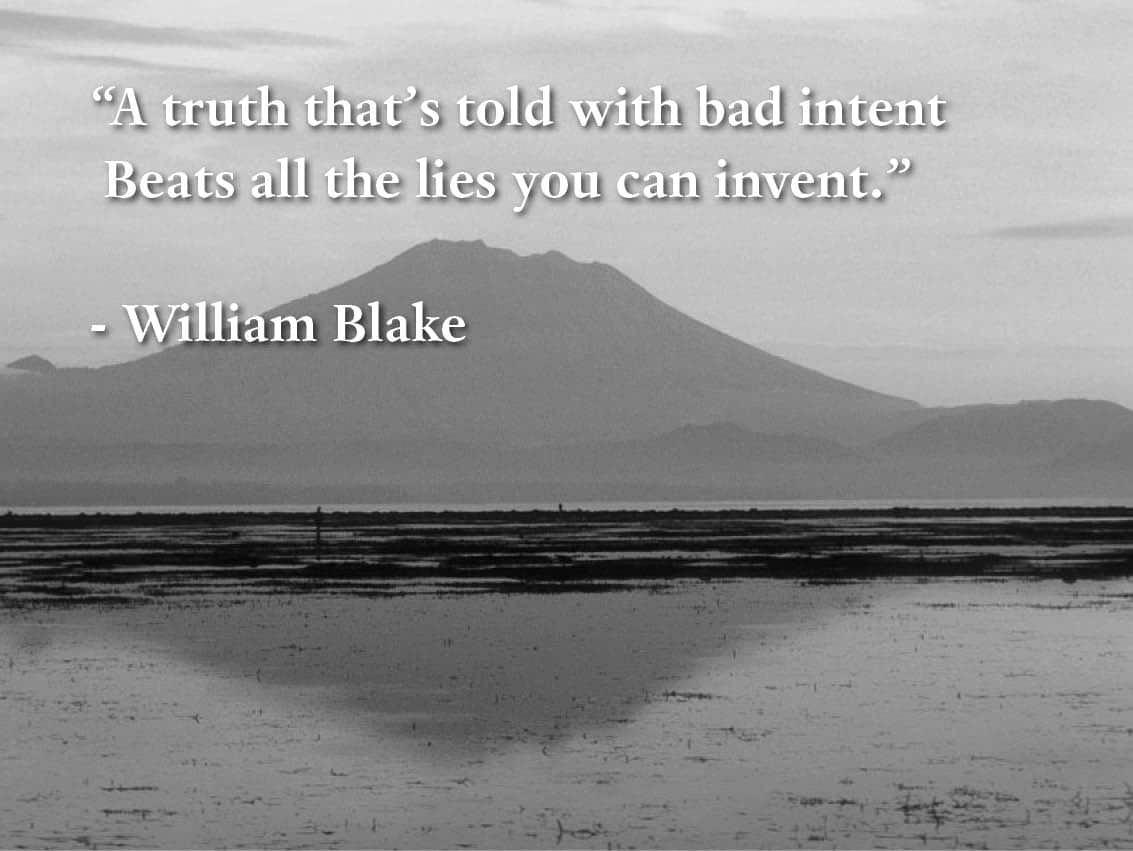
“A truth that’s told with bad intent
Beats all the lies you can invent.”
– William Blake
“Truth is generally the best vindication against slander.”
– Abraham Lincoln:
“The truth is not always beautiful, nor beautiful words the truth.”
― Lao Tzu, Tao Te Ching
“In a time of universal deceit, telling the truth becomes a revolutionary act.”
George Orwell:
“Truth never damages a cause that is just.”
― Mahatma Gandhi
“Truth alone Triumphs”
– The Upanishads
“All fanaticism is false, because it is a contradiction of the very nature of God and of Truth. Truth cannot be shut up in a single book, Bible or Veda or Koran, or in a single religion. The Divine Being is eternal and universal and infinite.”
– Sri Aurobindo
“It is always the false that makes you suffer, the false desires and fears, the false values and ideas, the false relationships between people. Abandon the false and you are free of pain; truth makes happy, truth liberates.”
― Nisargadatta Maharaj
“When I despair, I remember that all through history the ways of truth and love have always won. There have been tyrants, and murderers, and for a time they can seem invincible, but in the end they always fall. Think of it – always.”
– Gandhi
“Tell all the Truth but tell it slant –
Success in Circuit lies
Too bright for our infirm Delight
The Truth’s superb surprise”
– Emily Dickinson:
“Always tell the truth. That way, you don’t have to remember what you said.”
– Mark Twain
“Whatever satisfies the soul is truth.”
― Walt Whitman
“Men occasionally stumble over the truth, but most of them pick themselves up and hurry off as if nothing ever happened.”
― Winston S. Churchill
“Truth is ever to be found in the simplicity, and not in the multiplicity and confusion of things.”
– Sir Isaac Newton
“Art is the lie that enables us to realize the truth.”
― Pablo Picasso
“Three things can not hide for long: the Moon, the Sun and the Truth.”
― Gautama Buddha
“Being in a minority, even in a minority of one, did not make you mad. There was truth and there was untruth, and if you clung to the truth even against the whole world, you were not mad.”
― George Orwell, 1984
“If you want to tell people the truth, make them laugh, otherwise they’ll kill you.”
― Oscar Wilde, The Nightingale and the Rose
“I’m for truth, no matter who tells it. I’m for justice, no matter who it is for or against. I’m a human being, first and foremost, and as such I’m for whoever and whatever benefits humanity as a whole.”
― Malcolm X
“Love truth, but pardon error.”
― Voltaire
Related
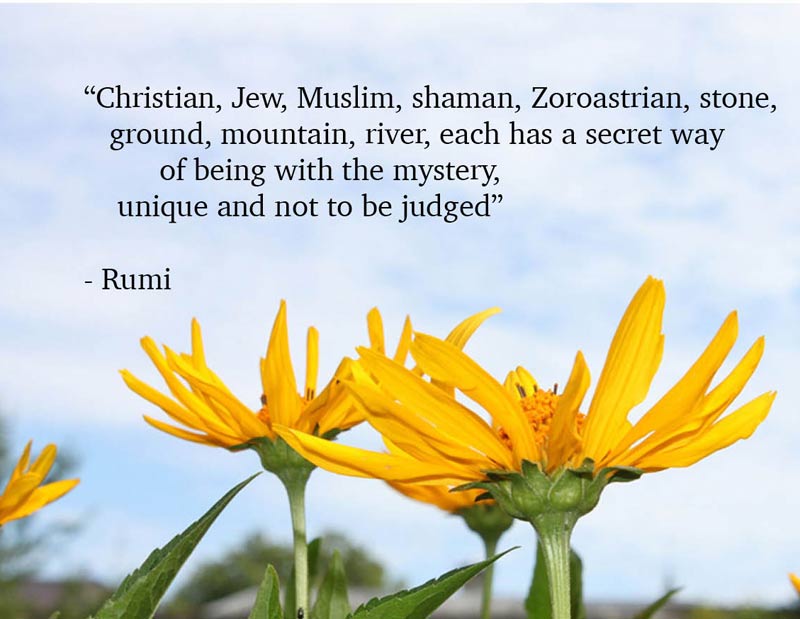
– Rumi
Recent pages
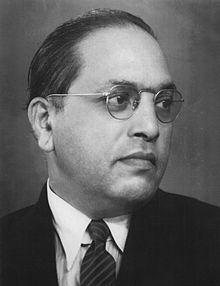
Quotes of B.R. Ambedkar
Religion must mainly be a matter of principles only. It cannot be a matter of rules. The moment it degenerates into rules, it ceases to be a religion, as it kills responsibility which is an essence of the true religious act.
– B.R. Ambedkar
What are we having this liberty for? We are having this liberty in order to reform our social system, which is full of inequality, discrimination and other things, which conflict with our fundamental rights.
– B.R. Ambedkar
A great man is different from an eminent one in that he is ready to be the servant of the society.
– B.R. Ambedkar
A people and their religion must be judged by social standards based on social ethics. No other standard would have any meaning if religion is held to be necessary good for the well-being of the people.
– B.R. Ambedkar
History shows that where ethics and economics come in conflict, victory is always with economics. Vested interests have never been known to have willingly divested themselves unless there was sufficient force to compel them.
– B.R. Ambedkar
For a successful revolution it is not enough that there is discontent. What is required is a profound and thorough conviction of the justice, necessity and importance of political and social rights.
– B.R. Ambedkar
Religion must mainly be a matter of principles only. It cannot be a matter of rules. The moment it degenerates into rules, it ceases to be a religion, as it kills responsibility which is an essence of the true religious act.
– B.R. Ambedkar
The Muslim Society in India is afflicted by the same social evils as afflict the Hindu Society. Indeed, the Muslims have all the social evils of the Hindus and something more. That something more is the compulsory system of purdah for Muslim women.
– B.R. Ambedkar (1)
This high-flown and ingenious sophistry indicates why these institutions were honoured, but does not tell us why they were practiced. My own interpretation is that they were honoured because they were practiced. Any one slightly acquainted with the rise of individualism in the 18th century will appreciate my remark. At all times, it is the movement that is most important; and the philosophies grow around it long afterwards to justify it and give it a moral support.
– B.R. Ambedkar
“My study of the Caste problem involves four main points: (1) that in spite of the composite make-up of the Hindu population, there is a deep cultural unity; (2) that caste is a parcelling into bits of a larger cultural unit; (3) that there was one caste to start with; and (4) that classes have become Castes through imitation and excommunication.”
– B.R. Ambedkar
U Thant – the UN third Secretary-General was a supreme diplomat and peacemaker. His Buddhist practise helped him to cultivate the detachment, equanimity and compassion which turned helped tun philosophy into a practical peace-reality. Striving to deal with the turbulent world of the 1960s and 70s, U Thant was widely respected for his promotion of world peace and world oneness.
” Two world wars were fought to make the world safe for democracy. Today we have to wage a war on all fronts. This war has to be waged in peace time, but it has to be waged as energetically and with as much total national effort as in times of war. The war we have to wage today has only one goal, and that is to make the world safe for diversity.”
– U Thant
“The concept of peaceful coexistence has been criticized by many who do not see the need to make the world safe for diversity. I wonder if they have ever paused to ask themselves the question: What is the alternative to coexistence?”
– U Thant, Address of 1964, republished in Portfolio for Peace (1968), p. 14
“Every human being, of whatever origin, of whatever station, deserves respect. We must each respect others even as we respect ourselves. This, as the sages of many lands have taught us, is a golden rule in individual and group, as well as international, relations.”
U Thant, Portfolio for Peace (1968), p. 92
“As a Buddhist, I was trained to be tolerant of everything except intolerance.”
– U Thant, View from the UN (1978)
“It is far from my intention to claim that I have reached a very high stage on the path to attainment of the highest wisdom, or that I have attained complete “inner peace.” However, I can claim that I practice bhavana every day. I try to cultivate the ethical aspects of Buddhism, and I believe that I have attained a greater degree of emotional equilibrium than most people.”
– U Thant
For are not birth and death the two phases of the same life process? According to the Buddha, birth is followed by death, but death, in turn, is followed by rebirth.
– U Thant p. 23
“To understand my feelings — and my conception of the role of Secretary General — the nature of my religious and cultural background must first be understood. I should therefore like to outline not only my beliefs but also my conception of human institutions and of the human situation itself.”
– U Thant p. 23
“As a Buddhist, I was trained to be tolerant of everything except intolerance. I was brought up not only to develop the spirit of tolerance but also to cherish moral and spiritual qualities such as modesty, humility, compassion, and, most important, to attain a certain degree of emotional equilibrium.”
– U Thant
“Many of the problems that we face today are due to, or the result of, false attitudes – some of them have been adopted unconsciously. Amongst these is the concept of narrow nationalism – ‘my country, right or wrong’. It is lack of truth in international relations that leads to the conscious or unconscious adoption of double standards. It is therefore essential that, in international relations as in human relations, we should practice, as we preach to others, the universal principle of truth. “
U Thant – Muller, R. (1977). The Example of a Great Ethical Statesman: U Thant. New York: Agni Press (printed as a special supplement to the United Nations Meditation Group Bulletin).
“Many of the problems that we face today are due to, or the result of, false attitudes – some of them have been adopted unconsciously. Amongst these is the concept of narrow nationalism – ‘my country, right or wrong’. It is lack of truth in international relations that leads to the conscious or unconscious adoption of double standards. It is therefore essential that, in international relations as in human relations, we should practice, as we preach to others, the universal principle of truth. “
U Thant – Muller, R. (1977). The Example of a Great Ethical Statesman: U Thant. New York: Agni Press (printed as a special supplement to the United Nations Meditation Group Bulletin).
“It is understandable that the major powers should pursue objectives which seem to them to be in their own national interest; but they should not be blind to the existence of a larger goal, the common interest of all countries, larger and small, in the survival of the human race. They should, at least occasionally, pause to reflect on the course of history, which has seen the rise and fall of so many great empires. Generations to come will judge the conduct of those in positions of authority today by the effect that their actions had on the course of human peace and progress. If they wish to have an honored place in human history they must appear as men of peace and not as mere victors in war.”
U Thant – Muller, R. (1977). The Example of a Great Ethical Statesman: U Thant. New York: Agni Press (printed as a special supplement to the United Nations Meditation Group Bulletin).
Related
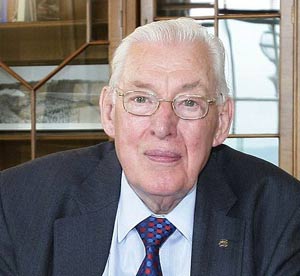
For many years, Ian Paisley’s war cry was “No, No, No”, “Never, never, never! – “NO surrender”
He bitterly opposed the Catholic civil rights movement. The failure of this civil rights movement led to the IRA taking up arms and a campaign of violence in the province. Paisley was guilty of inciting anti-Catholic feeling.
“Catholic homes caught fire because they were loaded with petrol bombs; Catholic churches were attacked and burned because they were arsenals and priests handed out sub-machine guns to parishioners”
– Paisley at a loyalist rally in 1968 following attacks on Catholic homes.
“They breed like rabbits and multiply like vermin”
– Paisley talking about Catholics at a loyalist rally in 1969.
Ian Paisley was highly critical of the Catholic Church. In 1988, he had to be physically removed from the European Parliament after interrupting a speech by Pope John Paul II – Paisely, never a man for mincing his words, denounced the Pope as the Antichrist
“I denounce you, Anti-Christ! I refuse you as Christ’s enemy and Antichrist with all your false doctrine” – addressing Pope John Paul II on a visit to the European Parliament October 1988.
– a cry he repeated many times.
Paisley vociferously opposed the 1985 Anglo-Irish Peace Treaty. He campaigned against the Good Friday Peace Accord of 1988.
“I will never sit down with Gerry Adams… he’d sit with anyone. He’d sit down with the devil. In fact, Adams does sit down with the devil” – on Adams in February 1997.
Yet, in the evening of his life he had made a u-turn and agreed to a power sharing agreement with Sinn Fein – his long-term bitterest enemy. He formed a working relationship with Martin McGuinness (a former IRA Commander) and the two became good friends as they worked in a new Stormont Parliament.
“If anybody had told me a few years ago that I would be doing this, I would have been unbelieving”
– inside Parliament Buildings, Stormont, after agreeing to enter a power-sharing government with former IRA leader Martin McGuinness.
“People have come out of a dark tunnel and they can see there is a path out there for us. I think it has put a lot of faith and hope into people”
– on the eve of being sworn in as first minister of the power-sharing government.
Part of the radical transformation in Paisley was the fact that the IRA had announced a ceasefire and given up its weapons. Sinn Fein also came to accept the Northern Irish police force. With these concessions from the Republicans, Paisley was able to come to a power sharing agreement.
“Today, we can confidently state that we are making progress to ensure that our two countries can develop and grow side by side in a spirit of generous co-operation. Old barriers and threats have been, and are being, removed daily”
– After meeting Irish PM Bertie Ahern 2007
He even told McGuinness on their first day of working together than ‘We don’t need any Englishman coming over to tell us what to do.’ McGuinness paid a moving tribute to his former adversary, shortly after Paisley’s death
“In rising above old enmities, we pointed the way to a better and peaceful future.”
Some argue Paisley’s conversion to power sharing should have come many decades earlier. His vitriolic rhetoric against Catholicism and Republicanism has still left an indelible mark on Northern Ireland creating a sense of sectarian divide that still is deeply entrenched in the culture and politics of the province.
Nevertheless, the fact the man who said “NEVER” came to a power sharing agreement with his ‘enemies’ is still grounds for hope. It is a sign that even with the deepest enmity and bitterness, there is the chance to work together with people of a different tradition.
Northern Ireland still has deep sectarian divides, but the future is more hopeful and more optimistic than for many decades. The fact that the man who said ‘No’, came to say Yes, let’s work together is part of that jigsaw.
Related
External links